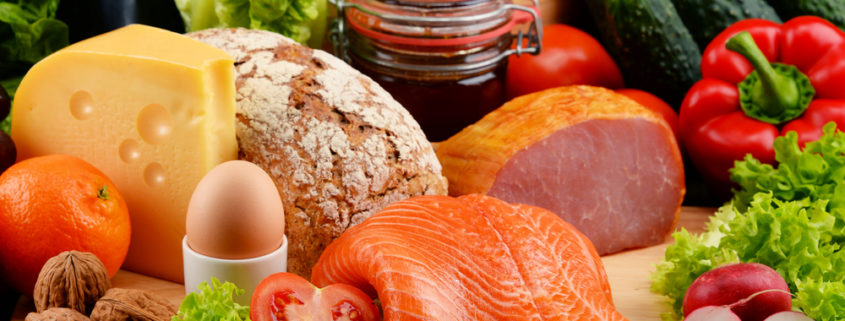Eating Right When You Have Sleep Apnea
There is a growing awareness that sleep apnea and oral hygiene have much to do with each other. However, many patients would be surprised if their dentist asked them about their sleeping patterns. The truth is our oral cavity has a direct role in the cause of sleep apnea – a disorder caused by inhibited breathing pathways. What we eat, how we eat, and how our mouths allow the passage of air are all important factors – factors that have a much more obvious association with dental health.
Dentists will, of course, tell you to avoid the traditional sugary treats in order to improve dental health. I want to go a step further and offer some tips that are not only good for dental health – they are great for sleep health. If you suffer from sleep apnea, try adding more of these foods into your daily diet this summer:
- Fruits and vegetables: Rich in nutrients and fibers – and of course low on calories – fruits and vegetables are ideal substitutes for cookies and candy. Also, fiber promotes a longer feeling of fullness; the longer you feel full, the less likely you are to overeat. This is especially crucial, as most sleep apnea sufferers tend to be overweight. Just avoid bananas (we’ll get to that later, promise).
- Low-fat dairy products: Full of vitamin D, protein, and calcium, low-fat dairy also helps you feel fuller, longer. Try swapping out whole milk, heavy cream, and cheddar cheese for skim or low-fat milk and part-skim mozzarella cheese. Again, these foods will help promote healthy weight management, which in turn aids in your sleep apnea management.
- Plant-based oils: Overweight sleep apnea sufferers can also benefit from the unsaturated fats from plant-based oils as a great substitute for saturated fats in butter and margarine. Oils from canola, olives, safflowers, sunflowers, flaxseeds, and of course vegetables mean a wide variety of options.
- Whole grains: Whole grains operate in much of the same way as fruits and vegetables – they are richer in nutrients and fibers, which makes you feel fuller for a longer amount of time. Breads and cereals have a wide variety of whole grain options, and you can also opt for wild or brown rice, pearled barley, and old-fashioned oats.
Watch out for the following foods, which can make sleep apnea conditions worse:
- Bananas: While most fruits are great for improving sleep apnea symptoms, bananas are an exception. They actually can increase mucus production, which can make breathing problems worse while you sleep. The softer and more over-ripe they are, the more likely they can be to contributing to your problem.
- High-fat dairy: We already explained why low-fat dairy is a better option compared to high-fat products. The reason is simple: they are higher in fat! Since sleep apnea and obesity have a direct relationship, it will benefit you to cut out heavy cream, whole milk, cheddar cheese, butter, etc.
- High-fat meats: Because curbing fat intake is so crucial to addressing sleep apnea, beef and pork should be eaten very sparingly at best. The same goes for fried chicken and fish. When NOT fried, however, fish can be extremely beneficial. As an Alaskan staple, salmon’s high Omega-3 yield is optimal for maintaining ideal fat intake.
- Refined carbs: These foods are why whole grain options (mentioned above) are a better choice; refined carbohydrates contain a high amount of added sugar – already on the “unapproved” list as far as dentists are concerned. Their likelihood of contributing to weight gain is obviously higher, and will increase the risk of sleep apnea symptoms.
If you are concerned about how your oral health or diet may be affecting or even causing sleep apnea, it might be a good time to contact your local comprehensive, holistic dental expert.



